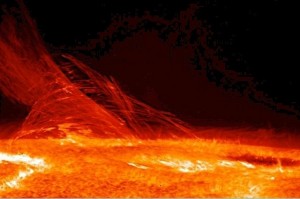fncceo
Diamond Member
- Nov 29, 2016
- 45,140
- 38,816
- 3,615
Where do you live?
Land of Lincoln
Follow along with the video below to see how to install our site as a web app on your home screen.
Note: This feature may not be available in some browsers.
Where do you live?
We were supposed to all be dead a long motherfucking time ago. Just ask algore…Video presents the possible effects of global warming, sea level rise, and the effect of 'moon wobble' that will occur in 2030. Worth watching.
Well have not seen that study. Lol . This ball will float around along time any way ya slice it. As far as us well we have had a good ride. All things end.The scientists claimed that by the year 3,000 the sun will have decayed so much, that it will lack the necessary force to heat the earth, therefore killing everything on it and turning into a wasteland..........therefore shifting the environment to where the earth will start cracking into pieces.
We're neighbors. I live in southern Wisconsin.
I googled "Environmental problems in Illinois". Your state is a mess, like I said.
Lol, the earthwill be fine for likely billions of years. We are the ones that are F***ed .
The scientists claimed that by the year 3,000 the sun will have decayed so much, that it will lack the necessary force to heat the earth, therefore killing everything on it and turning into a wasteland..........therefore shifting the environment to where the earth will start cracking into pieces.

Sorry, I meant the earth is a mess (actually the 'world' is as well).I study a lot of history.
More of the same.
For 5,000 years of human history tyrants have ruled the people.
For a brief moment of 200 years a nation arose where the people were in charge.
The tyrants don't like that, which is why the left assaults our constitution and system of government.
Tienamin Square has started in Ottowa. The tyrants will not stand for freedom. Freedom is hard won and so very easily lost.
Sorry, I meant the earth is a mess (actually the 'world' is as well).
My neighborhood is just peachy.. if yours is a mess, I recommend you move to a nicer one.
C'mon giant asteroid of 2022!!!There is a much more scary prospect than the world ending in 2030. And that's that the world will just go on after 2030.
It may look better on the surface but there's a chemical and biological timebomb building beneath.In my over 60 years of life I've seen the environment improve in America,
But any improvement here is offset by China trashing the planet.
 Droughts will concentrate these pollutants.
Droughts will concentrate these pollutants.The oxygen isotope curve - which is the accepted proxy for temperature - shows that the climate of our planet fluctuated less with warmer temperatures. Which makes sense since the temperature before the transition to the ice ages is about 2C warmer than today and the threshold for extensive continental glaciation is about 2C cooler than today. The climate of the planet is driven by what happens in the northern hemisphere because of its threshold for extensive continental glaciation. The southern pole has a continent parked over it and is always covered in ice. It has a much hotter threshold for extensive continental glaciation than the northern hemisphere does.I do believe climate change is a real problem, on top of other really serious problems, like the threat of Western values by increasingly bolder autocracies like Russia and China ... but I think it's unlikely either problem will just miraculously vanish in 2030.
What's more likely is that we will do too little, too late, and have to live in a world where extreme weather conditions become increasingly likely and life will be much more costy and uncomfortable, and if we're unlucky, we will lose freedom and have to live under tyrannic governments who keep telling us lies to distract from the world increasingly going to hell ... for the rest of the century, after 2030.
It may look better on the surface but there's a chemical and biological timebomb building beneath.Droughts will concentrate these pollutants.
Contamination of Groundwater | U.S. Geological Survey
Groundwater will normally look clear and clean because the ground naturally filters out particulate matter. But did you know that natural and human-induced chemicals can be found in groundwater even if appears to be clean? Below is a list of some contaminants that can occur in groundwater.www.usgs.gov
Scientists come to opposite conclusions about the causes of recent climate change depending on which datasets they consider. For instance, the panels on the left lead to the conclusion that global temperature changes since the mid-19th century have been mostly due to human-caused emissions, especially carbon dioxide (CO2), i.e., the conclusion reached by the UN IPCC reports. In contrast, the panels on the right lead to the exact opposite conclusion, i.e., that the global temperature changes since the mid-19th century have been mostly due to natural cycles, chiefly long-term changes in the energy emitted by the Sun.Well, you could look up science on that matter.
But there is doubt among scientists.There is no doubt among scientists all around the world that man made climate change is a reality and will have severe consequences.